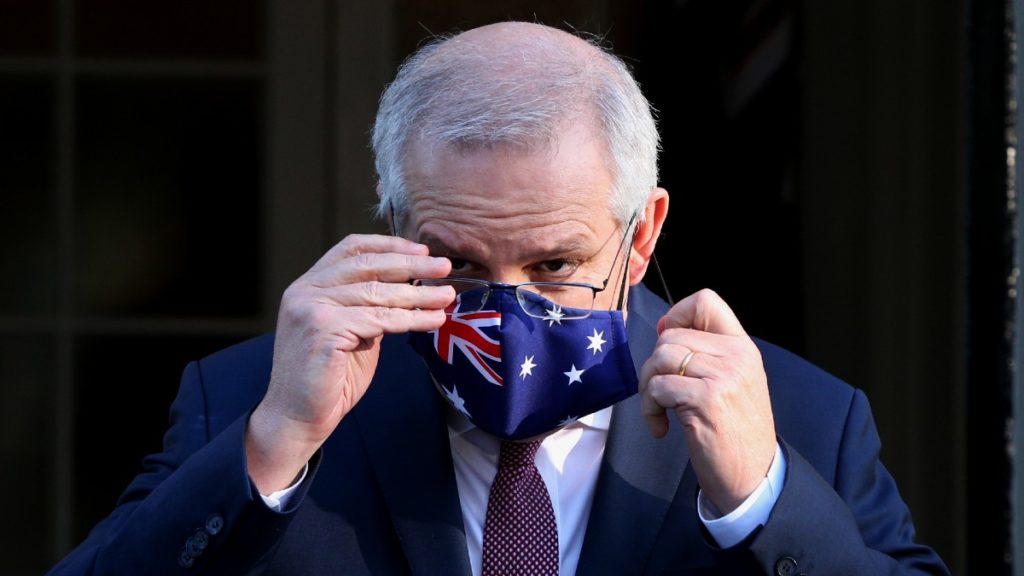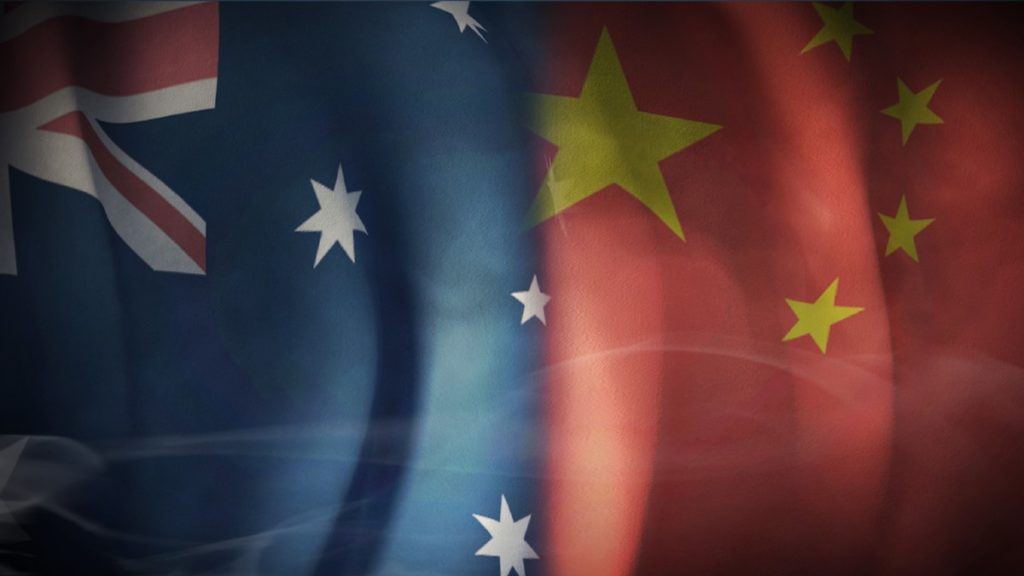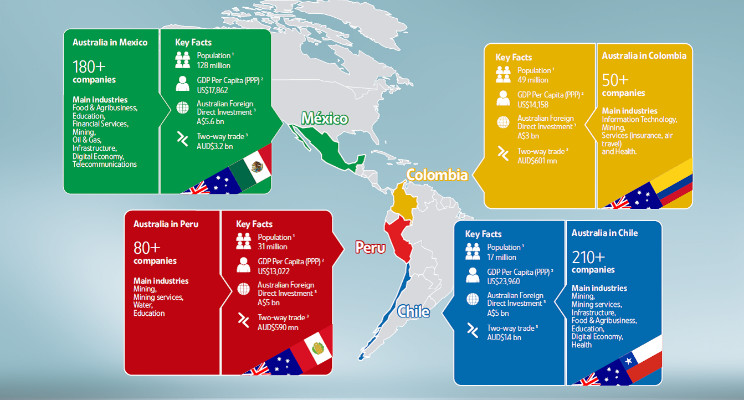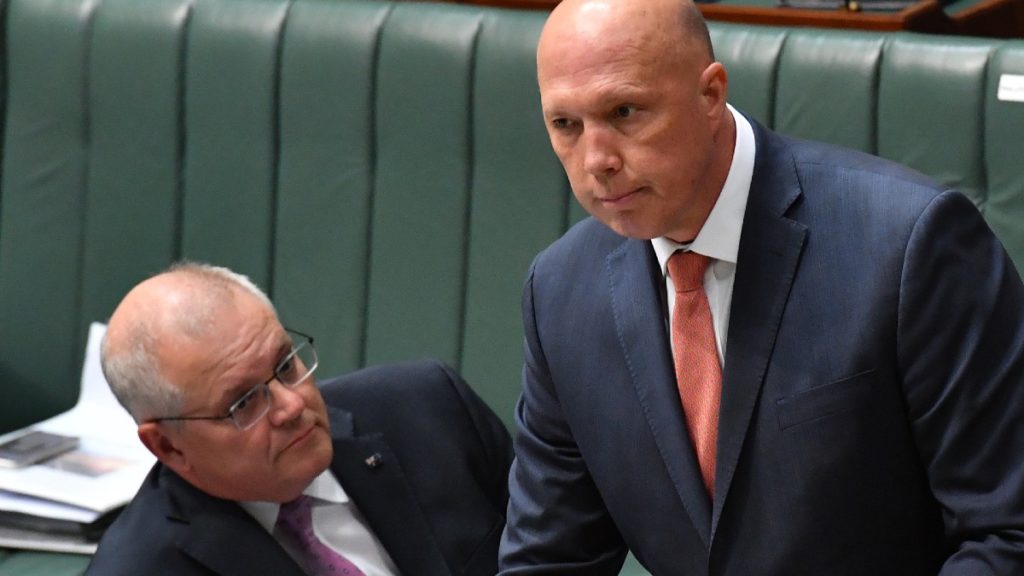How to train your dragon, once you’ve pissed it off
News
Here’s a few select cherry bombs from a decade of Australian leaders being particularly and publicly belligerent about China.
There’s Prime Minister Scott Morrison’s latest about China being “chillingly silent” on the war in Ukraine.
Here’s a familiar pity-party about “economic coercion”. Here’s some fussing about being hijacked on China’s (WeiXin) WeChat account. And then there’s the nuclear submarines, the ones that don’t do much about defending Australia, but will be handy in 2050 if there’s war in the South China Sea.
Defence minister Peter Dutton to anyone who will listen, ad nauseum: “the rise of China a growing threat to the world.”
And says that China’s return from abject poverty and global obscurity, “has echoes of the 1930’s.”
Mr Dutton’s accusations of Chinese political and electoral interference were roundly debunked and condemned by ASIO boss, Mike Burgess, and former ASIO boss Dennis Richardson.
And who could forget former PM Tony Abbott’s Trumpy-play on Covid-19 as the “Wuhan virus” and his comments, made in a visit to Taipei, about Beijing’s “cult of the new red emperor”.
Yes, these and many, many statements like them have been met with hurt, contempt and subsequently aggression from within China. The responses – like Mr Morrison is “clamouring for confrontation” in Ukraine – are instant and automatic – China’s diplomatic playbook is there for anyone to pick up and read.
Since the age of Confucius – to publicly lose face, be it in the pub, or on the world stage – is a disgrace which cannot go unanswered.
So Beijing’s latest gripe – that it is now being kicked around for political gain – bears some consideration.
Chinese nationalism is on the march again and Australia now resides in the region with a “Cold War mentality,” is a Running Dog for its U.S. overlord, and only speaks in “belligerent rhetoric that will escalate tensions.”
So here we are, kind of facing up to the economic consequences of picking a political fight with our biggest trading partner
Stockhead has been speaking with veteran Aussie economists, analysts, and policy wonks who’ve been at the forefront of our once historic, now rather hateful engagement with China.
And a critical thematic emerges of successive Australian governments; for their wretched economic planning; their ineffectual and culturally ignorant ‘megaphone diplomacy,’ and the blind luck that hasn’t yet delivered any economic impact at all.

The very mild mannered BRIC & China Expert, David Thomas, CEO of Think Global Consulting, told Stockhead straight up that he’s still “feeling a bit pissed off” with the Australian government and says our steadily increasing isolation from the emerging world hasn’t gone unnoticed by our biggest trading partners.
“Australia is not seen as the progressive, exciting country that it once was,” says Thomas.
“Where once Australia was a progressive, open international player that was always punching above its weight and playing a big role globally, we’ve quickly become a laggard and a backwater”, causing us to “drop the ball in terms of progressive reform and government policy”.
Thomas says his colleagues and cohorts in China are “really critical” of Australia for its pattern of attitudes on everything from open trade and economic partnership to climate change, clean energy, and sustainable investing.
“It’s interesting the Chinese are critical of us, now we’re pretty critical of them,” he says.
Thomas says the seed of this volatility was planted more than 15 years ago, after the federal election of Kevin Rudd and has persisted ever since.
“Kevin Rudd was elected on this great big promise of an exciting future but then really, the Labour Party blew themselves up and the Liberal Party has been blowing itself up ever since. They’re constantly at war with themselves over climate change and energy and so on.”
“Rat F*#$ers” and “Zheng you” were two fascinating examples of how China’s excitement at the election of Rudd, a mandarin speaking national leader, was misplaced and led to an unspoken rot in the emergent relationship.
According to Thomas, the strain became apparent even in the strongest parts of bilateral ties – exemplified in the changing perceptions of Australia as an attractive educational hub – a safe and sensible place to send your kids.
“After the pandemic and all that’s transpired, Chinese students may still come here, but it’s not being encouraged, promoted, or prioritised in the same way that it used to be,” he says.
“I don’t think they see us as progressive, reliable or interesting. Or worth the effort.
“We should be aware of that. I don’t think they’ll come back in the same numbers.”

However, Tim Harcourt, Professor and Chief Economist at the Institute for Public Policy and Governance (IPPG) at the University of Technology, sees a hotpot still half full of future opportunity.
While the tourism and education sectors have been hit pretty hard, Harcourt says there’s still 300 million middle class Chinese demanding high-quality education, “which means Australia is going to be very much a part of that part of that story”.
Dr Erin Watson, a public affairs & research consultant and DFAT board member says trade with China will more likely than not continue chugging along regardless of the diplomatic bungles of our Canberra bureaucrats.
“Trade with China is increasing despite everything that’s been happening,” she says.
“More than 40% of our trade is with China, that’s what the data tells us at the moment… Our exports to China have actually increased. It might be cooling but the numbers have actually gone up.”
However, having put all our eggs in the China basket, Dr Watson says Australia is now trying to scramble out of the hole it has dug itself. And while Australia does have economic diversification strategies, “we’re not necessarily doing that well on executing on that plan.”
Partly this has to do with the fact that DFAT and even parts of government lack the adequate resources to execute on those plans quickly enough.
“For example, we bang on about India all the time, but it’s not going to be the absolute golden goose,” she says.
“If we can get a trade agreement across the line, which is very difficult, particularly in the sectors that we need, like agriculture, they’re really difficult sectors for the Indian government to liberalise. And that’s what we’ve seen with the Indian farmers’ protests.
“So the sectors that are important for us are actually what’s hard for India. But then you’ll see progress in some areas around things like education and sectors that aren’t sensitive on the Indian side.”

Australia does have other free trade agreement options already at its disposal which have potential and should be revived, our analysts say.
There’s the GCC countries, the (Gulf Cooperation Council), which include Bahrain, Kuwait, Oman, Qatar, Saudi Arabia, and the United Arab Emirates all of which have expressed interest in reviving those negotiations.
“That’s actually a really big opportunity because they’re very reliant on food imports,’ Dr Watson-Lynn says.
“They import everything in those countries. Former defence minister, and chairman of The Australia United Arab Emirates Business Council, Christopher Pyne recently took a delegation to the UAE; that’s a very real and live opportunity with a lot of potential.”
The other opportunity is in the Pacific Alliance, a Latin American trade grouping comprised of Chile, Columbia, Mexico, and Peru which has been a backburner negotiation since June 2017 and which would actually open Australian trade access to the eighth largest economy in the world, representing 35% of Latin America’s nominal GDP, according to DFAT.
“It would also strengthen our economic relationship with the region and help facilitate value chains between the Americas and Asia.”
We actually already have a separate free trade agreement with Peru – PAFTA – which DFAT says generates $5 billion worth of energy and resource investment.
We’ve also had a free trade agreement with Chile since 2009 and which was worth $1.35 billion as of 2017-18. There’s also the Pacific Agreement on Closer Economic Relations Plus with New Zealand, Samoa, Kiribati, Tonga, Solomon Islands, Niue and Cook Islands, which entered into force in December 2020 and which already enjoys $30 billion in goods and services trade.
Watson-Lynn says that overlaying these with new agreements and different conditions while bringing in Colombia on the student front is a really valuable opportunity as well.
“We actually have other economic options, we’re just not very good at executing them,” says Watson. “But whereas the value of the China Australia export trade is $150 billion, these are like, $12 billion, and $30 billion.
“They don’t add up to the same, but when you have a diverse portfolio of agreements with high utilisation rates that Austrade and other government departments at posts are there to maximise, that’s an alternative.
“We’re just not very good at getting stuff done.”
That said, Dr Watson says the basic economics of business acts as a buffer against any geopolitical tensions.
Given the size of China’s construction industry, there will always be demand for iron ore, and it’s slim pickings with regards to where to get it from.
“Iron ore is such a classic example because it’s needed to produce and construct and that’s actually the sector we worry about the most because it’s triple the value of the next export,” she says.
“But it’s us or Brazil, basically”, she says. “This kind of goes with the whole trade relationship with other regions and countries as well. At the end of the day, whatever is easier for business and whatever can be done in the cheapest possible way, is what will happen.”
Ironically, the fact that it is still cheaper for Australian companies to work with China, manufacture in China, and import Chinese products is actually one of the main barriers to diversification.

That being said, Dr Watson is fairly confident that trade with China is “pretty much” more likely than not to continue chugging along regardless of the diplomatic bungles of our Canberra bureaucrats.
“At the end of the day, as long as it is still cheaper, the business community doesn’t give a toss about the political tensions,” she says. “They just want the government to get out of the way and stop bickering so that they can continue importing or exporting as cheaply as possible and make as much profit as possible.”
Professor Harcourt agrees. He says that despite current political tensions, and our ill-advised diplomacy-by-media strategy, “ultimately Australia needs China, and China needs Australia”.
“China has issues with economic energy security, and food security,” he says. “Rocks and crops, agriculture and mining exports to China always go well, even when there’s lots of rancour and political tensions.”
“There’s over 10,000 Australian companies exporting to China,” Professor Harcourt says. “If you looked at raw trade numbers, you wouldn’t even know there was a geopolitical stoush onl at all.”
Harcourt says it is important for Australia to “manage these things a bit better”.
China has been having diplomatic skirmishes with South Korea, Japan, the Czech Republic, Ecuador, Brazil, the UK, the US, Canada, and India, a lot of which has to do with General Secretary Xi Jinping taking a much more aggressive stance on the world stage compared to his predecessors, and even compared to at the early party’s terms.
“In Australia, we tend to say, ‘oh, you know, Australia’s stuffs everything up,’” Harcourt says. “But I think to some extent, it is a story of China’s new stance. Having said that, you don’t have to get the megaphone out every week. That’s not doing diplomacy.
“There are things that you say, and things that you really want to achieve. And when you’ve got quite an aggressive stance by Xi Jinping, having alliances in the region is a good way to go.”